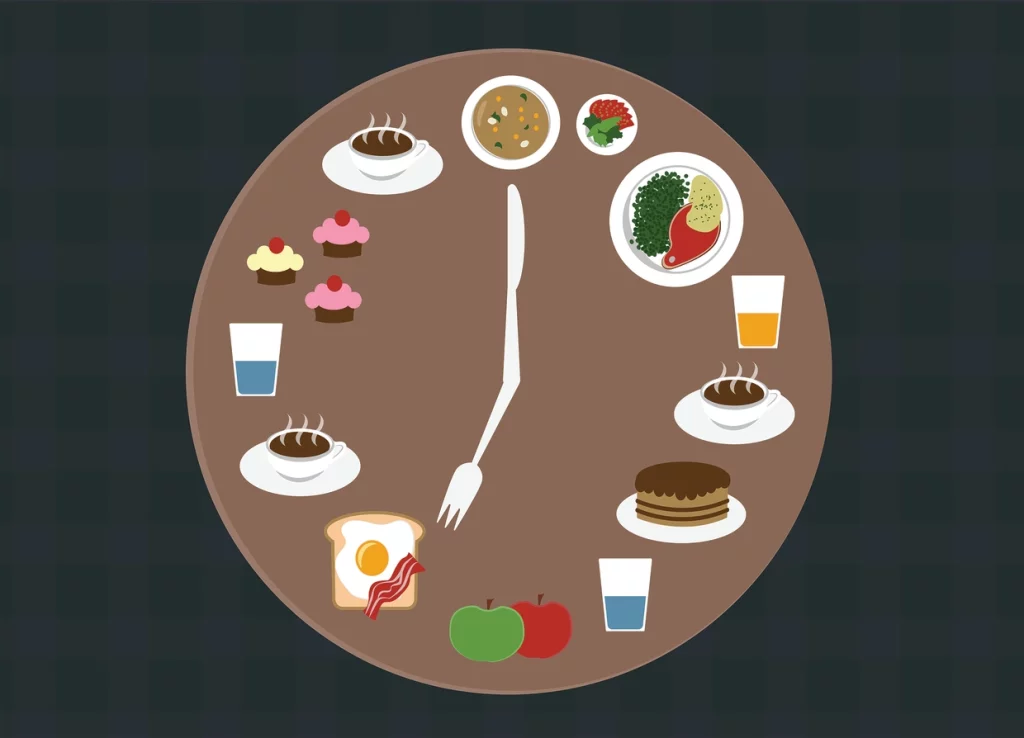
In the quest for weight management, the importance of balance cannot be overstated. While it’s tempting to dive into extreme diets or intense workout regimens, the key to sustainable weight management lies in finding a balance that nourishes your body and supports your overall well-being. This article explores the significance of balance in weight management and provides practical tips to fuel your body for optimal results.
The Role of Nutrition:
Nutrition is the cornerstone of weight management. A balanced diet provides essential nutrients, regulates metabolism, and supports overall health. It’s crucial to understand the role of macronutrients – carbohydrates, proteins, and fats – in maintaining a healthy weight. Carbohydrates are the body’s primary source of energy, but opting for complex carbs like whole grains and vegetables over simple sugars helps prevent energy crashes and supports stable blood sugar levels.
Proteins are essential for muscle repair and growth, aiding in weight loss by increasing metabolism and promoting satiety. Fats, especially healthy fats like those found in nuts, avocados, and olive oil, are crucial for hormone regulation and nutrient absorption. Striking the right balance of these macronutrients ensures your body has the fuel it needs to function optimally while supporting weight management goals.
The Importance of Portion Control
Portion control plays a significant role in weight management. Even healthy foods can contribute to weight gain if consumed in large quantities. Practicing mindful eating, which involves paying attention to hunger cues and stopping when you’re full, can help prevent overeating. Using smaller plates, measuring portions, and avoiding distractions while eating can also promote healthier portion sizes. Additionally, being mindful of serving sizes when dining out or eating packaged foods is essential, as restaurant portions tend to be larger than necessary. By incorporating portion control into your daily eating habits, you can enjoy a wide variety of foods without overindulging, ultimately supporting your weight management efforts and overall health.
Incorporating Whole Foods into Your Diet
Whole foods, such as fruits, vegetables, lean proteins, and whole grains, should form the foundation of your diet for effective weight management. These foods are nutrient-dense, meaning they provide essential vitamins, minerals, and fiber without excess calories. Incorporating a variety of colorful fruits and vegetables into your meals ensures you receive a wide range of nutrients while keeping calories in check.
Choosing whole grains like quinoa, brown rice, and oats over refined grains provides more fiber and keeps you feeling full longer. Lean proteins like chicken, fish, tofu, and legumes are vital for muscle maintenance and repair. By prioritizing whole foods, you not only nourish your body with the nutrients it needs but also support weight management by naturally controlling calorie intake and promoting satiety.
Finding Balance with Macronutrients
Balancing macronutrients is key to maintaining energy levels and supporting weight management. While each macronutrient serves a different purpose, they work together to keep your body functioning optimally. Aim to include a source of carbohydrates, protein, and healthy fats in each meal to ensure you’re adequately fueling your body. For example, a balanced breakfast might include oatmeal (carbohydrates), Greek yogurt (protein), and a handful of nuts (healthy fats). Experiment with different combinations to find what works best for you. By finding the right balance of macronutrients, you provide your body with the necessary fuel for daily activities while supporting muscle growth, energy levels, and overall health.
Hydration: The Often Overlooked Factor
Hydration is often overlooked in weight management, yet it plays a crucial role in overall health and weight loss. Drinking an adequate amount of water helps regulate metabolism, aids in digestion, and promotes satiety. Many people mistake thirst for hunger, leading to unnecessary calorie consumption. Aim to drink at least 8-10 glasses of water per day, and more if you’re physically active or in hot weather. Infusing water with fruits or herbs can add flavor without extra calories, making it easier to stay hydrated. By prioritizing hydration, you support your body’s natural processes, optimize metabolic function, and ensure proper digestion and elimination, all of which contribute to effective weight management.
The Role of Exercise in Weight Management
Exercise is an essential component of weight management, working synergistically with diet to achieve optimal results. It not only burns calories but also improves metabolism, boosts mood, and increases energy levels. Finding activities you enjoy, whether it’s running, cycling, yoga, or dancing, makes it easier to stick to a regular exercise routine. Aim for a combination of cardiovascular exercise, strength training, and flexibility exercises for a well-rounded fitness program. Remember that consistency is key – even small amounts of daily activity add up over time. By incorporating regular exercise into your routine, you not only burn calories but also build lean muscle mass, which increases metabolism and supports long-term weight management.
The Importance of Rest and Recovery
Rest and recovery are often underestimated in weight management, yet they are crucial for allowing your body to repair and rebuild. Chronic stress and lack of sleep can lead to hormonal imbalances that promote weight gain and hinder weight loss efforts. Aim for 7-9 hours of quality sleep each night to support overall health and weight management. Incorporating relaxation techniques such as meditation, deep breathing, or gentle stretching can also help reduce stress levels and promote recovery. By prioritizing rest and recovery, you allow your body to reset and rejuvenate, improving energy levels, mood, and overall well-being, which are essential for successful weight management.
Mindful Eating Practices
Mindful eating involves paying attention to the sensory experience of eating, including taste, texture, and smell. By slowing down and savoring each bite, you’re more likely to enjoy your food and recognize when you’re full, preventing overeating. Avoid eating while distracted, such as watching TV or scrolling through your phone, as this can lead to mindless eating. Instead, sit down at a table, chew slowly, and focus on the flavors and textures of your meal.
Practicing mindful eating can help you develop a healthier relationship with food and make more conscious choices. By becoming more mindful of your eating habits, you can better regulate your food intake, prevent emotional eating, and cultivate a greater appreciation for the nourishing qualities of food.
Building a Support System
Building a support system is essential for maintaining motivation and accountability on your weight management journey. Surround yourself with friends, family, or a support group who share your goals and can provide encouragement and guidance. Having someone to celebrate your successes with and lean on during challenging times can make all the difference. Additionally, consider working with a registered dietitian or personal trainer who can provide personalized guidance and support. By enlisting the support of others, you create a network of accountability and encouragement, making it easier to stay on track with your weight management goals.
Celebrating Non-Scale Victories
While weight loss is often the primary focus of weight management, it’s essential to celebrate non-scale victories as well. Non-scale victories include improvements in energy levels, mood, strength, and overall well-being. Celebrate when you reach a new fitness milestone, fit into a pair of jeans comfortably, or notice increased confidence and self-esteem. These victories are just as important, if not more so, than the number on the scale and serve as powerful motivators to keep pushing forward. By acknowledging and celebrating your non-scale victories, you reinforce positive behaviors and attitudes, fostering a sustainable approach to weight management that focuses on overall health and well-being rather than just a number on the scale.
Conclusion:
Achieving and maintaining a healthy weight requires finding balance in all aspects of life – nutrition, exercise, rest, and mindset. By prioritizing whole foods, portion control, hydration, and regular physical activity, you can fuel your body for optimal results. Remember to be patient with yourself and celebrate both the big milestones and the small victories along the way. With dedication, consistency, and a balanced approach, you can achieve your weight management goals and live a healthier, happier life.
